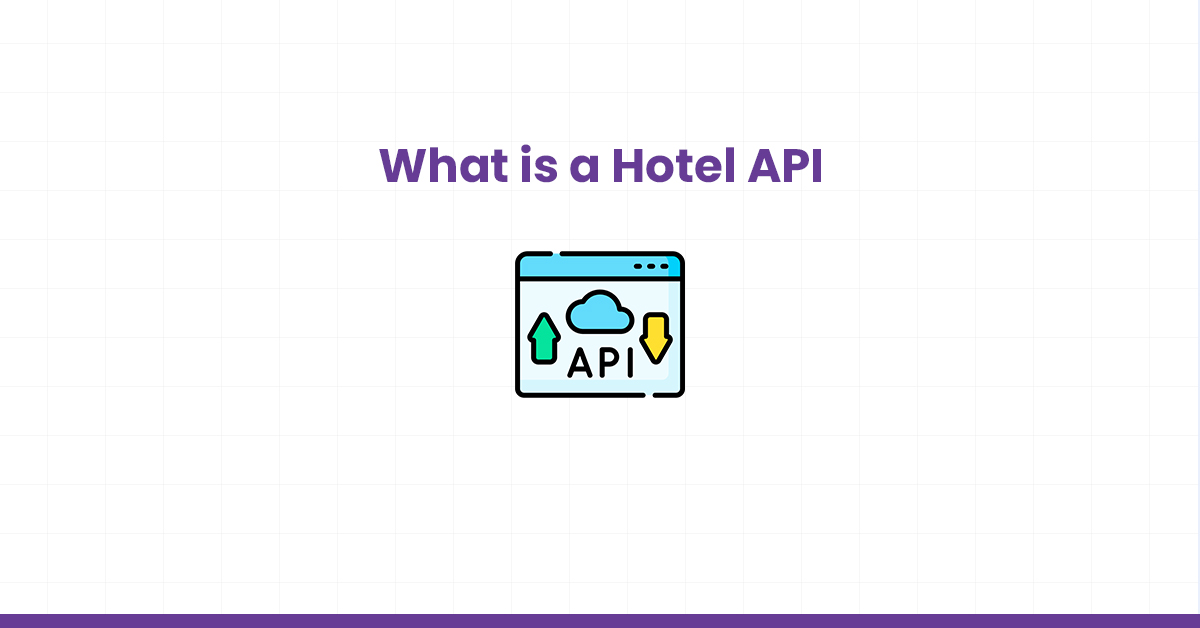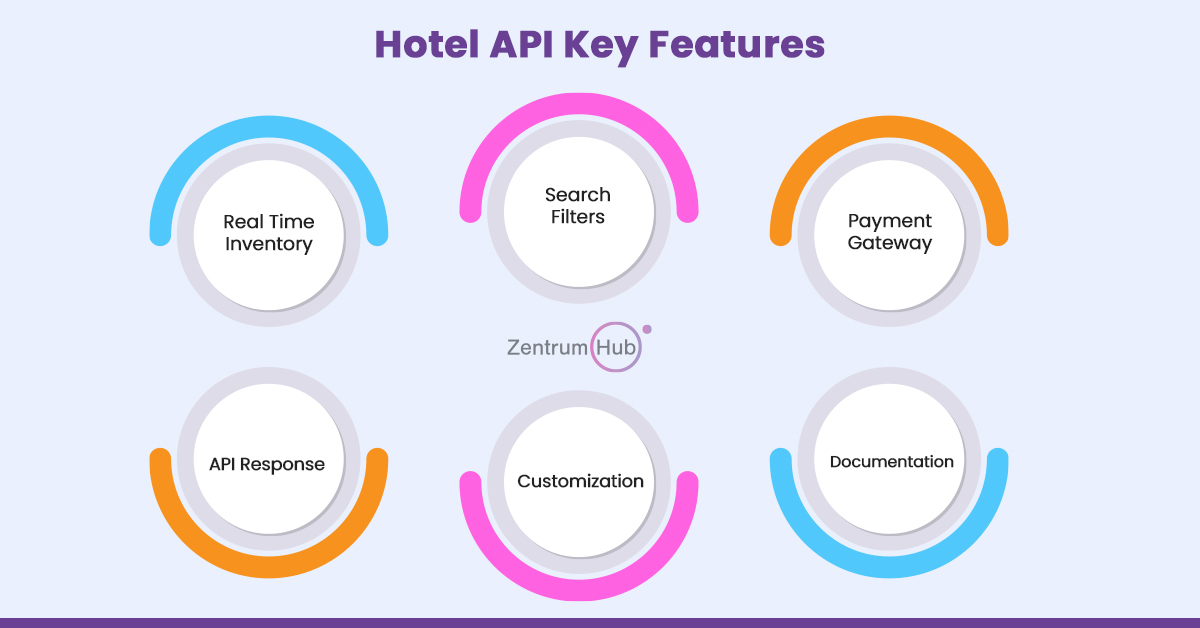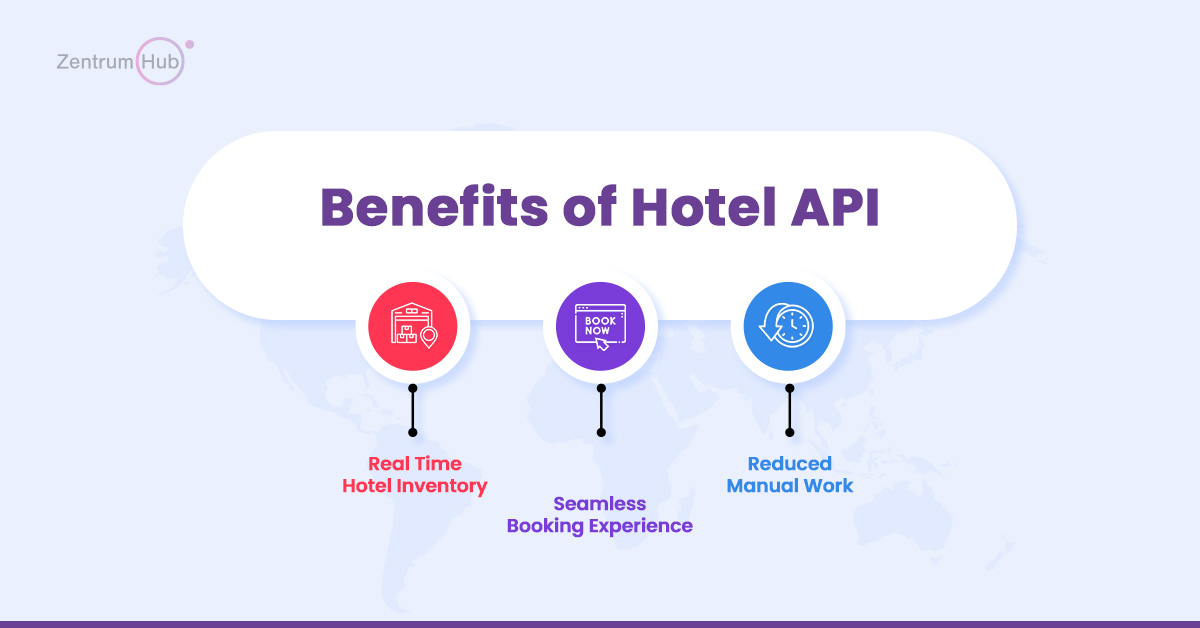Meet us at

New Delhi
25-27 Feb 2026

ITB Berlin
3–5 Mar 2026

DWTC, Dubai
4 – 7 May 2026

New Delhi
25-27 Feb 2026

ITB Berlin
3–5 Mar 2026

DWTC, Dubai
4 – 7 May 2026

In today’s highly competitive travel industry Hotel API (Application Programming Interface) is very important connectivity element for travel agencies, booking platforms, and hotel aggregators. A Hotel API enables businesses to integrate hotel booking functionalities into their websites or apps, allowing users to access real-time data on hotel availability, pricing, room details and much more.
Choosing the right Hotel API is a strategic decision that can significantly impact customer experience, operational efficiency, and revenue growth. In this comprehensive guide, we’ll explore the key features of an ideal Hotel API, its benefits, and real-world examples to help you make an informed choice.

A Hotel API is a web-based service that allows travel businesses to access hotel inventory from various suppliers, global distribution systems (GDS), and hotel chains. It facilitates seamless communication between different platforms, enabling users to search for, compare, and book hotels efficiently.
For example, when a user books a hotel through an online travel agency (OTA) like Expedia, the API communicates with multiple hotel databases to fetch real-time pricing and availability. Without an API, businesses would have to manually update and manage their hotel listings, which is both time-consuming and prone to errors.
ZentrumHub has 75+ Pre-Integrated Hotel Suppliers – View List

A well-designed Hotel API should offer a range of essential features to enhance functionality, security and user experience. Below are the top features to look for:
A high-quality Hotel API should provide access to a wide range of hotel listings worldwide. The broader the inventory, the better the options available to customers.
Example:
An OTAs travel booking website like https://www.akbartravels.com/ integrates multiple Hotel APIs to offer thousands of accommodations across different cities, from budget hotels to luxury resorts.
What to Look For:
Inaccurate pricing or availability can lead to customer dissatisfaction. A real-time Hotel API ensures that users always see up-to-date information.
Example:
When a traveller searches for a hotel room on https://www.akbartravels.com/ the API fetches real-time data from the hotel’s system. If the last available room gets booked elsewhere, the API updates the availability immediately to avoid double bookings.
What to Look For:
Users should be able to search for hotels based on multiple filters, such as location, price range, amenities, reviews and room type.
Example:
ZentrumHub’ s Powered OTA can refine their hotel search based on ratings, proximity to landmarks, free breakfast, Wi-Fi, and cancellation policies.
What to Look For:
A global Hotel API should support multiple currencies and languages to cater to international travellers.
Example:
A European traveller booking a hotel through Agoda in Thailand should be able to see prices in Euros and website content in their native language.
What to Look For:
Security is a top priority in online transactions. The API should support secure payment gateways like PayPal, Stripe, Nimbbl and credit card processing with PCI-DSS compliance.
Example:
A travel website like TripAdvisor allows users to pay via credit cards, PayPal and Google Pay while ensuring encryption for secure transactions.
What to Look For:
Since most travellers use mobile apps for booking, the API should be optimized for mobile devices and have a fast response time.
Example:
The Airbnb app loads hotel listings within milliseconds because it uses a high-performance API optimized for mobile users.
What to Look For:
ZentrumHub’ s API boasts a lightning response time less than 0.1 seconds
A good API should allow businesses to customize their booking platform with a unique brand identity.
Example:
A startup travel agency can use a white-label Hotel API from ZentrumHub for B2B & B2C Market. Provide you a branded booking experience without developing everything from scratch.
What to Look For:
An API with clear documentation and an easy setup process saves time and effort for developers.
Example:
Hotel Suppliers like Expedia RapidAPI provide well-documented Hotel APIs with sample codes for easy integration.
What to Look For:
With ZentrumHub’s Fast API, you can go live with the Hotel API within 3 to 4 weeks

Integrating a top-tier Hotel API comes with numerous advantages for travel businesses:
Here are some of the top Hotel API providers worth considering:
| Hotel API Provider | Key Features | Best For |
| Amadeus API | Global hotel inventory, dynamic pricing, AI-based recommendations | Large OTAs & travel agencies |
| Expedia API | Wide hotel database, real-time availability, competitive pricing | Mid-size travel businesses |
| Hotelbeds API | Exclusive hotel deals, white-label solution, multi-language support | Online travel startups |
| Booking.com API | Instant booking confirmation, flexible search filters, multi-currency | Websites needing instant bookings |
| TBO Holidays API | B2B travel solutions, secure payments, easy integration | B2B travel businesses |
75+ Hotel APIs are pre-integrated with ZentrumHub’s Universal Hotel API, including Amadeus, Expedia, HotelBeds, TBO, Ratehawk and more.
Choosing the right Hotel API can make or break your travel business. By focusing on comprehensive inventory, real-time updates, security, scalability, and user experience, you can ensure seamless hotel bookings and drive business growth.
Before selecting a provider, test API performance, review pricing structures, and check customer reviews to make the best decision.
We use cookies to improve your experience on our site. By using our site, you consent to cookies.
Manage your cookie preferences below:
Essential cookies enable basic functions and are necessary for the proper function of the website.
